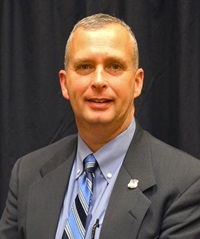
BY REP. TODD CARVER
One of the committees I am most excited to serve on in the N.C. House is the Regulatory Reform Committee. This group is tasked with reviewing proposed bills within the large area called government regulations. One of the reasons I was excited about this topic is that it sounds like the kind of place where bureaucrats could have run afoul in the past and therefore an opportunity to right some wrongs.
One of the first presentations we heard was on occupational licensing. So I was very excited to attend a two-hour presentation on the topic one night last week. The presentation was being given by the John Locke Foundation. I feel like it was one of the most valuable learning opportunities I have had since joining the N.C. General Assembly. The title of the presentation was, “The right to earn a living.”
I, like most people, had never stopped to think about occupational licensing and how it can impact the labor markets. Licensing should exist to protect consumers. Imagine the professions of doctors and lawyers; licensure was created to protect the public from those people who wanted to practice but didn’t have the proper training. In some professions, however, occupational licensing has turned into a way of keeping out the competition.
Before I go too far, I am in no way advocating for the abolition of occupational licensure in North Carolina. What I am interested in doing is finding some places to create opportunities for North Carolina workers.
Some 186 professions in North Carolina are controlled through the licensure process. We are the state with the 11th highest number of regulated professions. This creates a barrier to our workers and increases costs for consumers. In 2015 it was estimated the cost for occupational licensing increased the services rendered by 3 to 16 percent. That cost is estimated at 42,500 jobs and as much as $112 million in lost income annually for our people.
Consider that a barber in North Carolina is required to undergo 1,528 hours of training and a police officer is required to undergo less than 900 hours. The law enforcement officer’s hours were just increased in 2025 from 640 hours in 2024. The point being we have artificially created a barrier to people who wish to become barbers by having the training hours so high. Not to mention the fact that a police officer is making life and death decisions, and a barber is … well, very important too. I’m not trying to insult barbers; I’m trying to say we shouldn’t make it so hard to become one.
Another example is requiring teachers to take the Praxis exam. The teacher may have already taught for three years and have obtained a four-year college degree in teaching but he or she needs to take the Praxis to become certified. This exam comes with a price tag of $150 per attempt, which does not include the cost of practice sessions. Talk to almost anyone who has worked in education and they will tell you about a friend they had who would have made a great teacher but left the profession because of the Praxis. We need more teachers and fewer barriers to teaching.
We need to find ways for the state government to remove barriers to employment rather than create them. This will lead to a more productive economy for us all. I pledge to do my part to remove the barriers of licensure where they do not directly protect consumers in North Carolina.
Rep. Todd Carver represents the 95th District in the N.C. House.




I agree 150% on teaching graduates having to take the Praxis. If the students have graduated from an accredited institution with an education degree; they are ready for the classroom. Let’s make it easier for them to get on board, instead of making it more difficult.
Just because you’ve completed a degree doesn’t ensure you’ve learned anything and/or can put it into practice. Shall nurses, physicians, physical therapists, etc., then be exempt from licensure exams? Maybe LEO ought to have additional hours of instruction and practicum-like experiences, not less. The answer isn’t loosening or decreasing the minimum requirements – the answer is paying people a decent living wage. Since you use teaching as an example, it is inexcusable that North Carolina’s starting teacher salaries ($40,136) rank 42nd in the nation and almost $15,000 below the minimum living wage. LEO average salary is approx 52K, but varies across the state itself and NC is near the bottom nationwide. Fix that disparity before you lower the requirements.